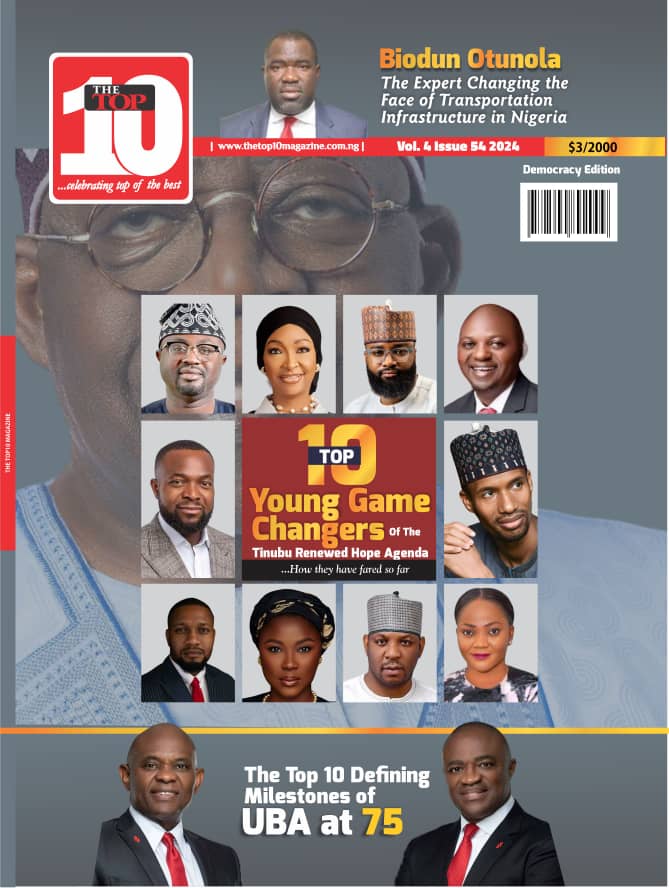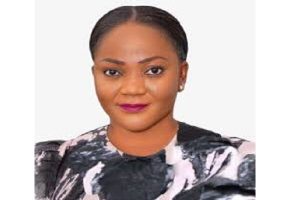Bosun Tijani who will be 47 next July is one of the youngest, pioneer indigenous icons of Nigeria’s Information, Communication and Technology (ICT) sector. His appointment as Minister of Communication, Innovation and Digital Economy was an obvious recommendation by his distinctive pedigree in Nigeria’s indigenous ICT space. It highlighted President Tinubu’s reputation for appointing people to positions where they perfectly fit, based on their talent, competence and experience.


The mandate of the ministry include facilitating universal, ubiquitous and cost effective access to communications infrastructure throughout the country; Promoting the utilization of ICT in all spheres of life to optimize the communications infrastructure – digital content creation, domestic software applications and the delivery of private and public services over the internet; promoting and facilitating the development of the ICT industry and increase the contribution of the ICT industry to GDP; and utilizing ICT to drive transparency in governance and improve the quality and cost effectiveness of public service delivery in Nigeria.
Tijani’s antecedents adequately prepared him for the responsibilities of his ministerial portfolio. And so far, he has lived up to his reputation. In just his first 100 days in office, he rolled out an impressive list of achievements to show for his stewardship. In line with his vision, the Minister initiated groundbreaking programmes, notably the Three Million Technical Talent (3MTT) initiative which recorded 1.6 million applications from different demographics across the country within a month. Collaborations with IHS Nigeria and UNDP bolstered the programmes’ strength to show the potential and talents particular to young Nigerians.
The programme which was one of Tijani’s earliest initiatives was co -created with stakeholders from within the ministry as well as external partners with expertise in training and funding.
The Tijani-led ministry, in partnership NITDA, introduced the Startup Support and Engagement Portal, streamlining registration for startups and innovation hubs. The release of the White Paper on the National AI Strategy underscored the Ministry’s commitment to policy-driven advancements. A comprehensive mapping of 2,500 innovation spaces across Nigeria by the ministry signaled a concerted effort towards fortifying the nation’s digital landscape. The ministry also carried out enhancements in NigComSat’s platforms targeted at expanding connectivity, especially in underserved regions, reflecting the ministry’s dedication to comprehensive digital infrastructure.
During the period, the ministry entered into noteworthy partnerships, exemplified by a $116 million financing initiative for the I-DICE programme and a global AI partnership of $100 million. These emphasized the ministry’s commitment to nurturing innovation and entrepreneurship. The launch of 100 AI jobs by Awarri AI in Lagos marked the commencement of an AI-driven entrepreneurial culture.
The ministry’s active participation in global events, including the G-20 Summit and Nigeria-Saudi Investment Summit, affirmed Nigeria’s ambition to establish a prominent position in the global technology landscape. Initiatives like the Fourth Industrial Revolution Technology Application (4IRTA) platform showcased the Ministry’s dedication to leveraging technology for sustainable development.
The ministry, under Tijani’s leadership has also launched #DevsInGovernment, described as “a community of the technology workforce of the Federal Government of Nigeria who are passionate about advancing technology and digital transformation in government”.
The idea, he explained in an interview with African Business, is to get the buy-in of the public sector.
“If they don’t know what you are trying to build, they can’t support you.”

It also helps that the president, who appointed him without once meeting him before, understands the mission and is backing him. The goal is to integrate technology into the very fabric of Nigeria’s society and economy, leveraging it to solve problems, create jobs and build prosperity.
Tijani sees Nigerian youth, who constitute about 60% of the 200 million population, as natural allies in the effort to build a digital economy. The plan is to equip these young people with the skills to make their way in the digital world.
The Technical Talent Training programme, unveiled in October 2023, aims to train three million people as the first step. Tijani believes Nigeria has a good pipeline of talent that is motivated and proactive and can form a tech-enabled workforce with a global impact comparable to India, which offers a strong example of tech-enabled growth.
According to him, what is important is to get academic institutions to buy into the mission and funding the research projects that will bring technology to life.
“In my first four months as minister, we’ve funded 45 research projects in artificial intelligence. We are announcing another 10 demonstration projects in agriculture, because the president is quite bullish on agriculture. He wants us to cultivate half a million acres of land, so we are seeing the role that technology can play,” he explained in the interview.
Artificial intelligence is, of course, front and centre in the digital conversation and Tijani feels that even if Africa was left out at the beginning, the continent can still catch up where it matters most.
“In terms of what is actually there, we can leapfrog this application. I think African countries like Nigeria can use AI more efficiently than western countries,” he says, pointing to sectors like agriculture and public health, where from a starting point of “almost zero,” Africa can build out solutions without needing to first dismantle something already in place.
“We’re also making sure that while we may be late to the frontier, we’re participating in global conversations around how it should be governed. We don’t have a choice. Once it is built, it is going to affect all of us.”
The minister believes that Nigeria can become a strong global voice for AI data inclusion, and can also contribute on AI safety. He was a guest at the recent AI Safety Summit hosted at Bletchley Park by the UK government.
Building local capacity also means local capital, something that even in deep-pocketed Nigeria is not quite flowing. This is in spite of the fact that in the last quarter of 2023, the tech sector accounted for 18% of Nigeria’s $500bn economy. Tijani attributes this to the structure of the start-up ecosystem: “We talk about them as if they are outside the sector, but they are part of it. So the startup ecosystem still misses out on getting integrated with the actual communication sector and I think once we do that… they can start to do good business, which will attract local investors and local money.”
The minister said the federal government itself has embarked on its digitalisation drive. The task now, according to him, is to integrate the disparate systems into a comprehensive digital public infrastructure system. A holistic system will include a digital identification system and Nigeria’s Interbank Settlement System which, Tijani says, has more users than the more celebrated M-Pesa.
“That’s what we are now doing. The goal is to build a system which will provide standards for technology solutions in government and also facilitate interoperability and data sharing among the different government solutions. Once we’re able to build that base foundation, it’s easier for us to start to digitalise different government operations.” As an investor, advocate and now regulator, Tijani’s faith in the power of technology is obvious.
“I think we need to learn from fintech in Africa. There are massive opportunities for technology in education, for example. There is so much we can be doing with tech to support teachers. I think agriculture is also another area where we are sleeping on the power of digital technology. I’m hoping that before the end of the first four years, we can see another vertical that becomes really strong, as strong as fintech.”
Tijani was born in Agege, Lagos, on July 20, 1977, and spent his formative years there before moving to Abeokuta, capital of neighbouring Ogun state, for his secondary education. In 1996, he went to University of Jos, Plateau State, where he earned a diploma in Computer Science before enrolling to study Economics, graduating with a Bachelor’s degree in 2002. He later obtained an M.Sc in Information Systems and Management from the Warwick Business School, United Kingdom in 2007.
In 2023, Tijani earned a PhD in innovation and economic development from the School of Business, University of Leicester. His doctoral research focused on contributing to a better understanding of how the network perspective to innovation capacity could provide a contextually relevant framework for explaining the adoption and adaptation of innovation in developing countries. The study specifically offers an alternative path to how African countries could effectively organise their innovation ecosystems.
Tijani has also been part of the Innovation for Economic Development executive programme at Harvard Kennedy School in 2013 as well as being a 2014 Draper Hills Fellow of the Centre for Democracy, Development and the Rule of Law (CDDRL) at Stanford University.
Before CcHUB, Tijani worked with the International Trade Centre, Geneva, Switzerland as a Fellow, researching on trade development with particular emphasis on enterprise management development. During this period, he successfully led the development and deployment of a web-marketing and information services programme in Ghana between March and September 2006 and subsequently in Uganda and Kenya which recorded positive outputs. The programme was deployed in Ethiopia and later extended to South Africa and Tanzania.
At Hewlett Packard, Tijani successfully managed the deployment of the ODel learning centre at the Africa Virtual University in Kenya and completed the deployment of the HP, IEEE and University of Ibadan telecentre in Nigeria. He also initiated and completed the deployment of the HP Micro-enterprise Acceleration Programme learning centre at the Lagos Business School in Nigeria and provided recognizable support to its deployment in Egypt and Morocco.
Tijani later moved to Pera Innovation Network (PERA) in 2007 where he served as the European Innovation Manager. At PERA, he led the coordination of innovation agencies across Europe. In different capacities, he was responsible for managing the Pan-European Research Network of Universities participating in the Framework Programme 7 as well as the INNOTEX Project – a European Commission-funded project for the development of a cross cluster best practice platform for entrepreneurial innovation for the technical textile sector (United Kingdom, Spain, Estonia and Denmark).
In 2010, Tijani co-founded CcHUB, a technology innovation centre dedicated to accelerating the application of social capital and technological innovation for economic prosperity. In the early years, he led a number of social technology projects including Lagos Innovation Hotspots and the i-HQ concept (the umbrella initiative for Yaba – the fastest growing tech cluster in Africa), which involved working with MainOne Cable and the Lagos State Government to lay fibre optic cables in the Yaba area of Lagos, accelerating the growth of the area into becoming the home of technology startups in Nigeria. Under his leadership, CcHUB has driven the growth of social innovation and influenced businesses and initiatives in different sectors including – environment (Wecyclers), fiscal transparency (BudgIT), e-commerce (Traclist), Healthcare (LifeBank), education (re-learn), wellness (Truppr) and transportation (GoMyWay), civic activity (GoVOTE), online and cybersecurity (SafeOnline), among others.
His later work with CcHUB focused on the company’s expansion into other parts of Africa and positioning the business as a vital catalyst for the African tech ecosystem promoting collaboration, knowledge sharing, and the development of groundbreaking solutions to local and global challenges. This has been done in collaboration with a number of global partners and founders who have backed his work extensively.
In addition to his ongoing work with CcHUB, Tijani is also actively involved in a number of initiatives within and outside the tech ecosystem.
The young minister has served on the boards of several companies; was a member of a highlevel expert advisory group focused on advising the European Commission on how to mainstream research and innovation through Africa-Europe Cooperation; and was selected in 2017 by the African Leadership Institute to be a part of the prestigious Desmond Tutu Leadership Fellowship.






